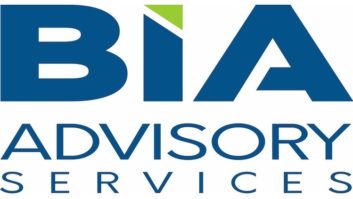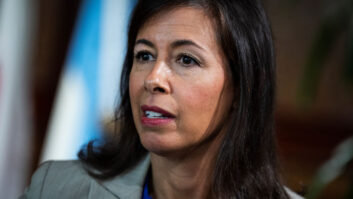The 2024 primary season is about to heat up, with predictions of record-breaking spending of over $10 billion, according to news reports.
While such revenues may be a boon for broadcasters, the political season can be a minefield, necessitating a refresher on the importance of record-keeping and timely, proper posting to the station online political file.
The FCC monitors this closely. The 2022 mid-term political season saw more than 220 consent decrees issued to stations for failure to comply fully with political recordkeeping rules (and this despite the consideration the FCC gave to stations suffering from staffing shortages and technical issues as a result of the pandemic).
The consent decrees provide some guidance on the commission’s expectations regarding information required to be placed in the station’s political online public file and deadlines. With Covid now causing far fewer staffing emergencies, we can expect a less tolerant agency that recognizes fewer exceptions and forgives fewer transgressions.
Therefore, it is critical for stations to understand the rules and policies and follow these procedures for compliance with FCC requirements.
Every station should: (1) ensure that all key staff members are aware of and understand the FCC’s political file rules; (2) designate a senior staff member to be responsible for ensuring station compliance with the political advertising rules; (3) adopt a procedure to screen political ad buys; and (4) provide regular training sessions to staff to ensure they know the relevant internal procedures and FCC requirements. Stations should ensure their staff know which ads the rules apply to and what needs to be done if the political rules do apply.
Definitions
When is the public file requirement triggered?
The requirement is triggered when the station receives a “firm inquiry” for political advertising, whether candidate or issue advertising. This does not include general inquiries about availabilities or about political rates on the station. A “firm inquiry” has been referred to by commission staff as an inquiry for a specific date, time or schedule and rates for that time or schedule.
What constitutes issue advertising?
Stations are not required to upload information related to every single ad they sell. The Communications Act at §315(e)(1)(B) states that a station must maintain a political file for requests to purchase broadcast time: (1) made by a legally qualified candidate for public office; or (2) that communicates a message relating to any “political matter of national importance,” including a national legislative issue of public importance.
At a minimum, “political matter of national importance” includes: (1) References to legally qualified candidates for federal office (the commission has noted that this refers only to federal candidates, although some ads concerning state and local candidates may qualify as raising “political matters of national importance”) or, although placed by a local or state candidate, the ad may refer to a political party slate that includes a reference to a federal office or the party’s candidate for that office; (2) any reference to a federal office (for example “our next senator” or “our person in Washington”) and any reference to an election to federal office; or (3) a “national legislative issue of public importance.”
A “national legislative issue of public importance” is any matter that is the subject of controversy or discussion at the national level; the term is narrower than a “political matter of national importance.” It includes issues that are the subject of federal legislation that have been introduced and are pending in Congress at the time the request for airtime is made.
In considering context as to whether an advertisement constitutes a “political matter of national importance,” analyze whether the message is both “political” in nature and of “national importance,” having significance on a national level. To trigger the disclosure obligation, the broadcast message must satisfy both requirements.
Another important distinction is whether the issue, though possibly relating to a national issue, is really only a statewide or local one.
An example might be abortion, particularly since the Dobbs decision overturning Roe v. Wade. While reproductive rights are certainly discussed on a national level, various states are passing legislation or placing the issue on state ballots as a referendum. To the extent that the advertisement addresses only a state referendum or specific state legislation that may be voted on only by the residents or legislators of that state, the FCC may consider that it addresses only a state issue and not a national legislative issue or national political issue.
When considering such an order, listen carefully to the ad and consult your station lawyer if it raises the question.
[See Our Business and Law Page]
Political File Disclosure Requirements
Once a station determines they have accepted a political ad, they need to comply with the FCC’s rules and recordkeeping requirements. The following is required to be disclosed by the station:
All Issues and All Candidate References
For each request to purchase time that relates to the political matter of national importance, licensees must disclose in the station political file ALL political matters of national importance mentioned in the ad. The disclosure must include any mentions of any or all of the following: the names of ALL legally qualified candidates and the offices to which they are seeking election, ALL elections for federal office (with or without a candidate name), and all “national legislative issues of public importance” referred to in the communication.
“All” is emphasized here because in the past, some stations reported only the principal issue discussed in the ad, or only the candidate primarily addressed in the ad, even when others were mentioned. This has now been clarified to make certain it is understood that all such issues and all such candidates must be identified in the public file posting.
The Required Political File Information
The station must place in its political file (a subset of its online public inspection file) the following information:
- Whether the request to purchase broadcast time is accepted or rejected by the licensee;
- The rate charge for the broadcast time;
- The date and time in which the communication is aired;
- The class of time purchased;
- The name of the candidate to which the communication refers, the office to which the candidate is seeking election and the election to which the communication refers;
- The issue or issues to which the communication refers (remember, ALL issues discussed must be listed); and
- In the case of any other request, the name of the person purchasing the time, the name, address and phone number of a contact person for such person, and a list of the chief executive officers or members of the executive committee or of the board of directors for such person.
Although candidate ads are not specifically addressed in this article, note that for a request made by or on behalf of a candidate, the name of the candidate, the authorized committee of the candidate and the treasurer of such committee must also be included in the political online public inspection file.
Importantly, for each ad that references a political matter of national importance, whether or not it is designed or placed for a candidate PAC, the public file information must also include:
- The names of ALL candidates for federal office referenced in the broadcast message;
- The respective offices to which all such candidates are seeking election;
- ALL elections referenced in the broadcast message; and
- ALL national legislative issues of public importance.
The Sponsor
The Communications Act and FCC rules also require that, whenever the station broadcasts ANY political matter or a matter involving a controversial issue of public importance that is paid for or furnished by any entity, the station must obtain and place in the public file a list of the chief executive officers or members of the executive committee or of the board of directors and make it available in its online public inspection file.
A problem that frequently occurs in the political online public file materials is when the ad buyer provides only one name or a short list of names. This is not sufficient. If you have a reasonable basis for believing that the provided sponsor information appears to be incomplete, the station has an affirmative obligation and MUST inquire further, at least once.
For example, whenever the name of only one official has been supplied, the station must make further inquiry. The obligation to inquire will be satisfied by making a single further inquiry to either the organization sponsoring the ad or the third-party buyer of advertising time acting on the organization’s behalf. But it MUST make the inquiry.
While the response is not required to be placed in the public file, it should be obtained in writing and provided to the station manager or station political advertising official and maintain it in a safe place to document the station efforts should a later inquiry be made.
In summary, make certain that anyone wishing to place such advertising with you provides complete information to satisfy your requirements.
Timing for Compliance
Section §315 (e)(3) of the Communications Act states that the information is to be placed in the political file “as soon as possible” and shall be retained by the licensee for a period of not less than two years. The commission has defined “as soon as possible” as the next business day. In the prior election season, which occurred during Covid, the commission did try to take into account the extraordinary situations that occurred due to the pandemic. Licensees should not rely on such relief as this season faces a much different situation, and stations must diligently ensure all uploads are completed by the next business day.
Conclusion
Political campaigns recognize that broadcasting remains one of the most important and potent means of effectively communicating their message. The 2024 cycle is likely to be highly partisan, addressing some of the most critically important issues America has ever faced. It promises to be a good one for broadcasters and their revenues. It is equally important that broadcasters embrace their historic role in contributing to a properly informed electorate and understand the rules that apply to their role.
This column is provided for general information purposes only and should not be relied upon as legal advice pertaining to any specific factual situation. Legal decisions should be made only after proper consultation with a legal professional of your choosing.







